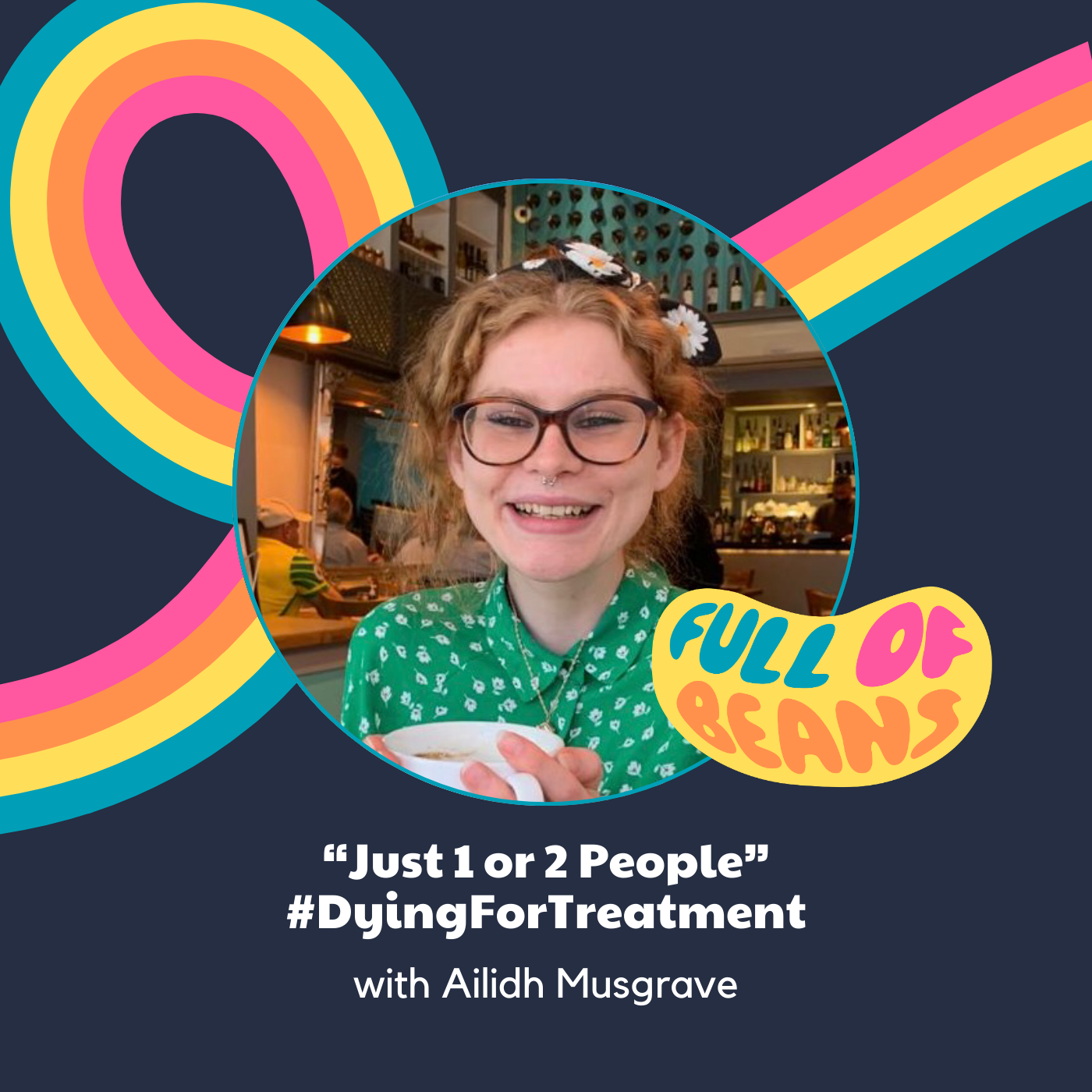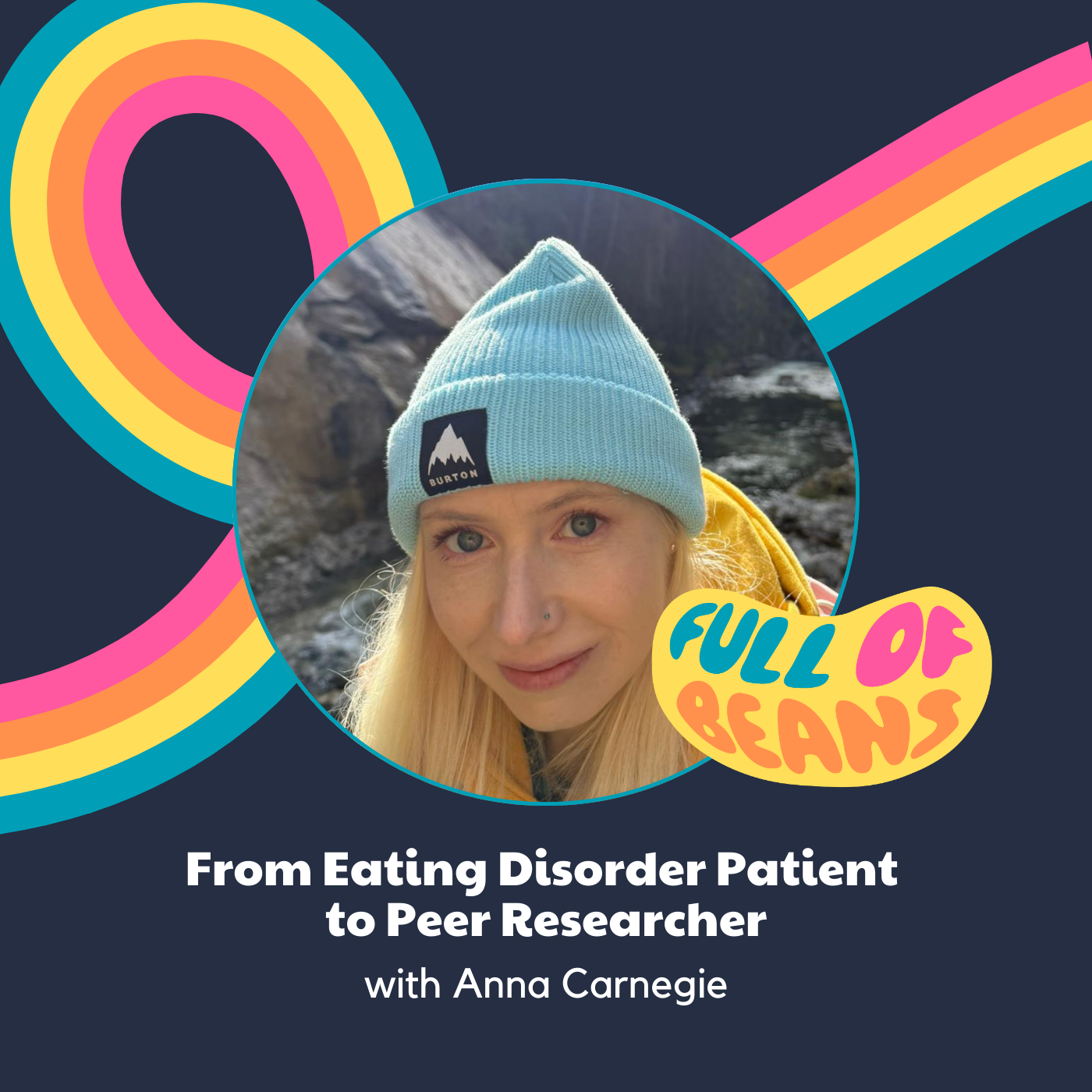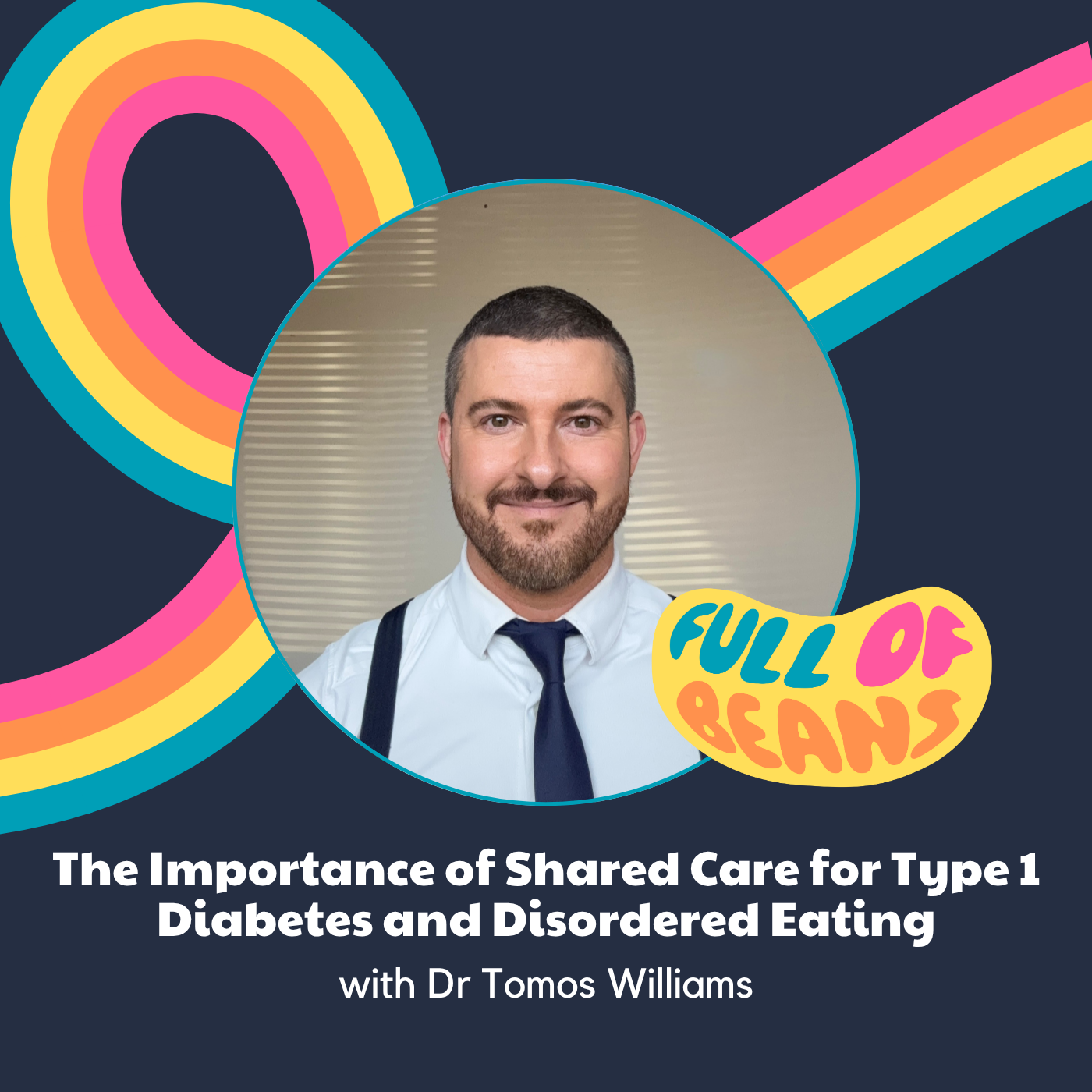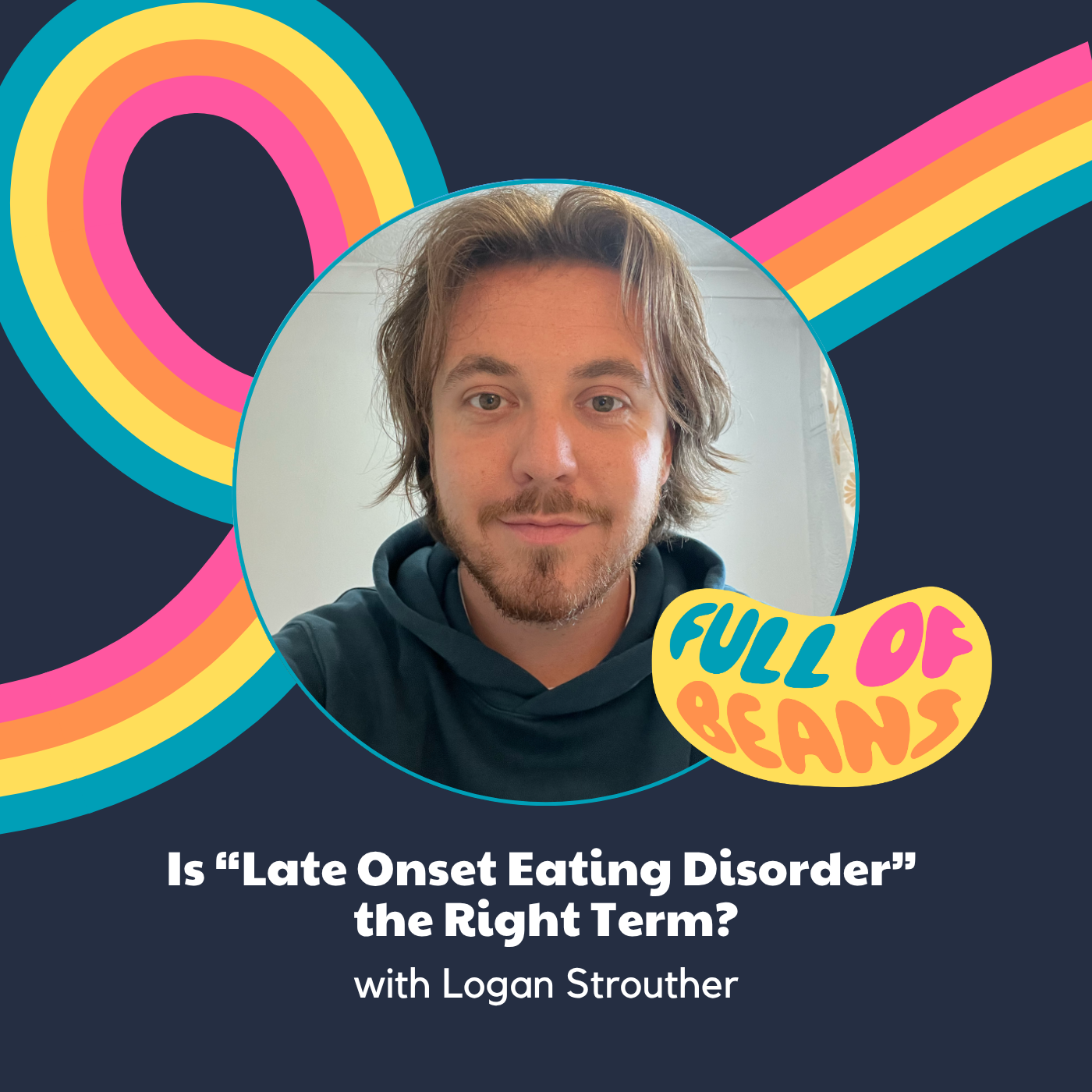Exploring Addiction & Eating Disorder Stigma & Support
Opening the Conversation for Men's Mental Health Week

What do you do when you’re struggling with something you don’t have the words for? Or maybe you know the words "addiction" and "eating disorder" but they can't possibly explain your situation?
This question sits at the heart of our latest Full of Beans podcast episode with James Hitchin, a therapist, eating disorder and addiction recovery advocate, and founder of the Wellbeing and Recovery Collective.
James joined me to speak openly about his lived experience of addiction, disordered eating, and the often-unspoken intersections between the two.
He shared his journey with honesty, and in doing so, reminded us that sometimes we don't know how to define what we're struggling with, but that talking to others and seeking support can provide the clarity we need to get better.
Addiction and Eating Disorders: Similar, But Not the Same
Addiction and eating disorders often get talked about separately, but they share a lot in common:
- Both can begin as coping mechanisms as ways to numb out or feel in control
- Both are heavily stigmatised and often misunderstood
- Both thrive in silence, shame, and secrecy
But they also differ in key ways.
In addiction recovery, particularly substance use, there’s often a clear, abstinence-based framework. You stop drinking. You stop using. And that’s how progress is measured.
Eating disorder recovery is less black-and-white. You can’t abstain from food. You can’t stop eating to heal, you have to rebuild your relationship with food, your body, and your thoughts. And that’s very hard in a world that constantly praises weight loss, discipline, and fitness culture.
For James, recovery from addiction brought clarity, but also made space for long-ignored eating disorder behaviours to resurface. “What was left,” he shares, “wasn’t peace. It was all the stuff I hadn’t dealt with yet.”
Stigma: The Silence That Speaks Volumes
Addiction and eating disorders remain some of the most stigmatised mental health conditions. Misconceptions, media portrayals, and narrow stereotypes all contribute to a culture where people often suffer in silence, afraid to speak up—or unsure they even “qualify” for support.
- “I thought I was just broken, not disordered.”
- “No one ever said I looked unwell.”
- “How can I be struggling if I don’t look like someone with an eating disorder?”
These are the kinds of thoughts that so many carry. And as James shared, stigma doesn’t just come from outside, it often becomes internalised too. It convinces us our pain doesn’t count, or that if we just tried harder, we wouldn’t feel this way.
Sometimes We Don’t Have the Words
In the episode, James reflected on the years it took to understand that what he was experiencing was disordered eating, because he simply didn’t have the framework or language for it. And that’s a common experience, especially for people who don't fit the stereotypes of eating disorder recovery.
This is where support systems matter. It’s not about having the “right” diagnosis or saying the “right” words, it's about being heard, believed, and helped.
Supporting Men's Mental Health
This episode was recorded in recognition of Men’s Mental Health Week, but the message goes far beyond that. Campaigns like this are brilliant for raising visibility, yes, but visibility alone is not enough.
Awareness without action risks becoming just another trending topic. And the people we’re trying to reach? They need more than posts. They need:
- Access to inclusive, trauma-informed, evidence-based care
- Representation in treatment spaces and the professionals within them
- Support that respects lived experience just as much as clinical training
- Space to open up—without judgment, expectations, or labels
So yes, we’re here for Men’s Mental Health Week. But we’re also here the other 51 weeks of the year. Support can’t be seasonal. Stigma doesn’t pause when the hashtags stop trending, and neither should we.
Turning Lived Experience Into Support
What makes James’ story even more powerful is what he did next. After navigating his own recovery, he didn’t just move on—he built something. Through his work at the Wellbeing and Recovery Collective, James now helps others find clarity, community, and compassion in their own journeys.
He’s living proof that recovery can become a foundation, not a finish line.
🎧 Listen to the full podcast episode with James here
Sending positive beans your way,
Han 💛






